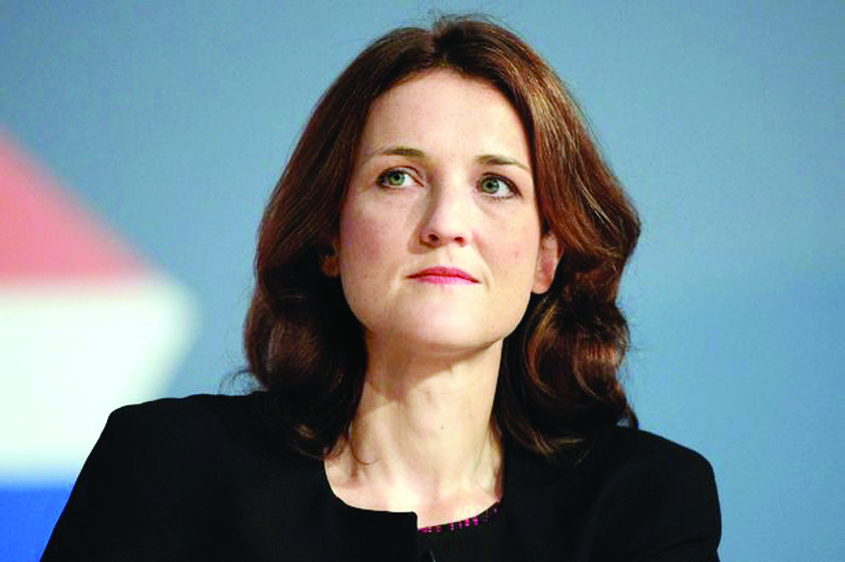Since the Conservative Party Conference early in October, Theresa Villiers, MP, is looking forward to her role as a backbencher. Villiers plans to campaign for the interests of her constituents in Chipping Barnet, notably the re-unification of Cyprus following the Turkish invasion of 1974. Villiers says the talks between President Anastasiades of Cyprus and Mustafa Akıncı, the Turkish Cypriot leader, are at a crucial stage and three out of four issues are close to agreement. Following a settlement, Villiers suggests that transitional measures about property ownership and security might be necessary before a unified normalisation could take place. At the time this reporter was talking to Mrs Villiers, Prime Minister Theresa May was hosting bilateral discussions with President Anastasiades. May underlined UK’s support for a comprehensive settlement and said the UK stood ready to help bring this to a successful conclusion.
Villiers has previously only enjoyed six months as a backbencher before being appointed by David Cameron as Secretary of State for Northern Ireland in 2011-2016, a position encompassing some of the most serious responsibilities in Parliament. Villiers sees the land border with the Republic of Ireland as her successor, James Brokenshire’s, biggest challenge.
Recently, a wide ranging Commons Select Inquiry into the future of the land border with the Republic of Ireland following Brexit was launched, with the aim producing recommendations and conclusions ahead of the start of formal negotiations between the UK and the EU. Northern Irish political activists have challenged the results of the EU referendum, claiming it would be unlawful to trigger Article 50, the official process for confirming the UK’s exit, without first securing Parliamentary authorisation. Villiers gives no credence to this as the Brexit result was quite clear, as is the Lisbon Treaty about Article 50, Villiers says, “It does not require a Parliamentary vote, 17.5million people voted to leave. It would be unfortunate to see a court undermine the result of a democratic referendum.”
With her experience Villiers believes it is perfectly possible to keep the North-South border open, reminding us that there has been a Common Travel Area between the UK and Ireland, which has allowed UK and Irish citizens to travel freely between the two countries for nearly 100 years. This operates independently from EU membership. She feels that the risks of large numbers of non-Irish EU citizens coming to the UK across an open land border are exaggerated. Whilst there may be some potential risks, Villiers does not think border checks are the solution as they have never been easy to enforce. More likely to be effective are internal rules about employment which make working without the legal right to do so a criminal offence. Regarding the transit of goods, Villiers suggests there are technological ways to carry out any customs checks which might be needed in the future, citing parallels between US and Canada and the successful TIR system (Transports Internationaux Routiers), which is emerging as a fully electronic, paper-free operation and could be adopted for Irish trans-border goods traffic. Villiers says, “Both governments have made it clear they want to keep the border as open as possible, so why should the EU inflict unnecessary division on the island of Ireland?”
Villiers says the second biggest challenge for the new Secretary of State, after Brexit, would be the legacy of the Troubles, the time during the 1980s when terrorism afflicted Northern Ireland. There are still a significant number of litigation cases requesting public enquiries. A new cross-party investigatory body has
been proposed to examine murders, terrorist attacks, the conduct of police and armed forces, but it is not yet functional.
Villiers has a longstanding interest in India, stemming from India’s thriving diaspora community in the UK, au-fait with India’s economic development. Villiers is looking forward to more business with India and hopes to visit the country in the near future.

